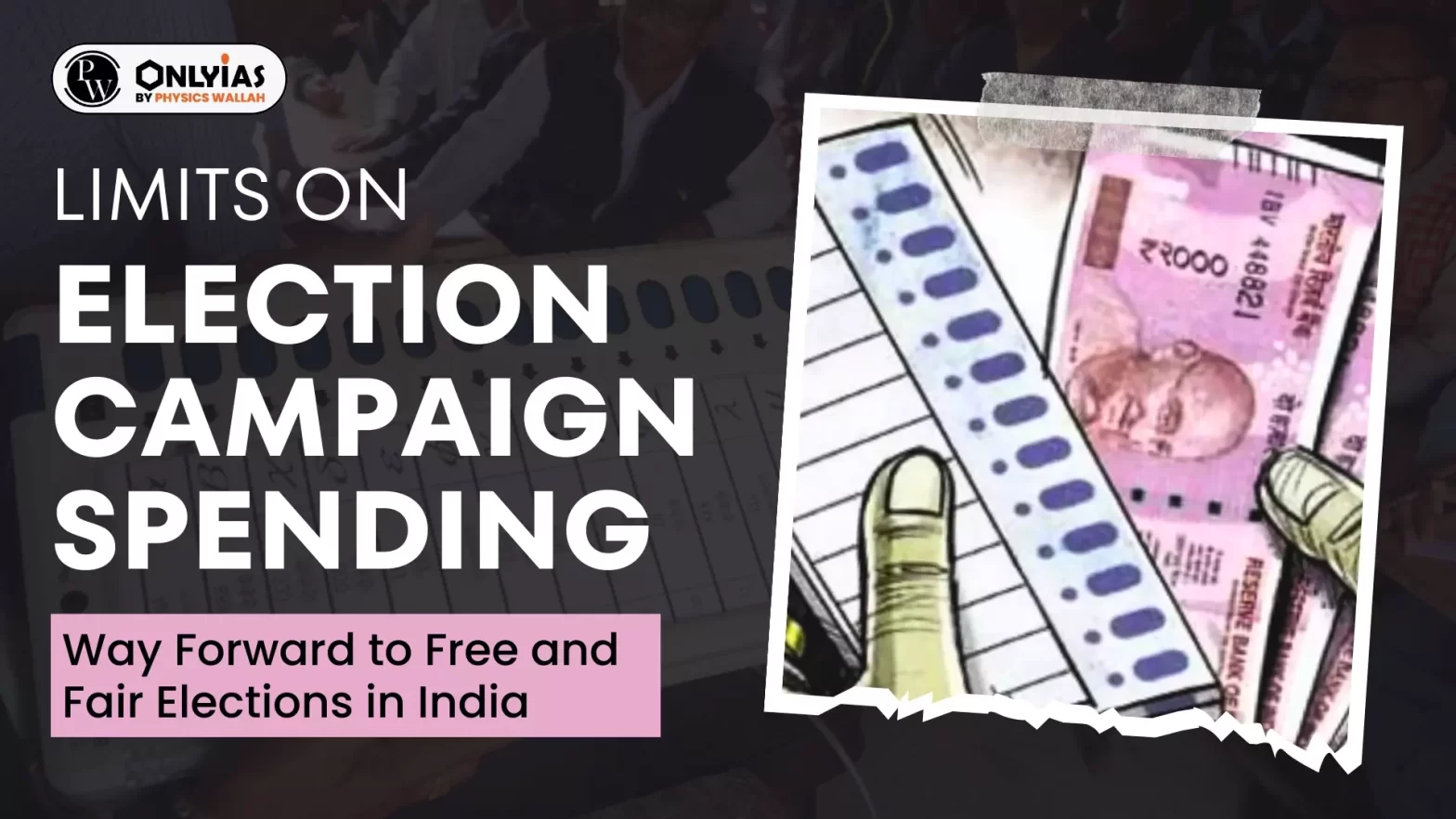![]() 11 Mar 2024
11 Mar 2024

This editorial is based on the news “We need limits on election campaign spending” which was published in the Hindu. There is a trend of governments at both the Central and State levels consistently allocating substantial budgets for pre election advertisements over the past two decades.
| Relevancy for Prelims: Lok Sabha Election, Election Commission Of India, One Nation One Election, and Intra Party Democracy In Indian Political Parties.
Relevancy for Mains: Issues relating to election campaign spending, Salient features of the Representation of People’s Act. |
|---|
|
|---|
These reforms need support from all the political parties and in the absence of reforms the people of India will end up bearing the high costs of elections.
| Prelims PYQ (2017):
Consider the following statements: 1. The Election Commission of India is a fivemember body. 2. Union Ministry of Home Affairs decides the election schedule for the conduct of both general elections and bye-elections. 3. Election Commission resolves the disputes relating to splits/mergers of recognized political parties. Which of the statements given above is/are correct? (a) 1 and 2 only (b) 2 only (c) 2 and 3 only (d) 3 only Ans: (d) |
|---|
| Must Read | |
| NCERT Notes For UPSC | UPSC Daily Current Affairs |
| UPSC Blogs | UPSC Daily Editorials |
| Daily Current Affairs Quiz | Daily Main Answer Writing |
| UPSC Mains Previous Year Papers | UPSC Test Series 2024 |

<div class="new-fform">
</div>